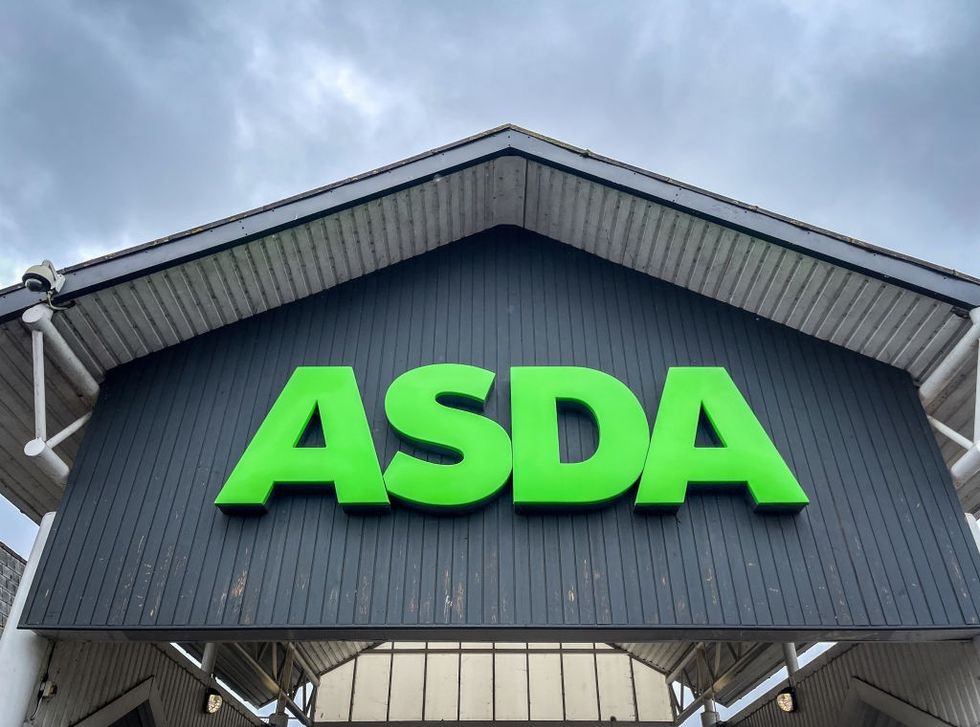Product recall: Asda pulls £2 breakfast staple from shelves amid risk of hives and vomiting

Asda is the latest supermarket to recall a food product due to undeclared ingredients
Don't Miss
Most Read
Asda has issued a recall on a tasty frozen food and some customers have been warned not to eat the £2 product.
It contains undeclared allergens that could cause symptoms including hives and vomiting in some cases.
The supermarket said: "Asda is recalling Asda Frozen Crispy Hash Browns 800g with a best before date of June 30, 2025 because some packs contain Potato Croquettes which contain milk and wheat which are not mentioned on the label.
"This means that the product is a possible health risk for anyone with an allergy or intolerance to milk and/or wheat.
"If you have purchased Asda Frozen Crispy Hash Browns 800g with the above best-before date, please bring it back to your nearest store where you will be given a full refund." Customers do not need to provide a receipt to return the recalled product.
Do you have a lifestyle story you'd like to share? Contact our team by emailing lifestyle@gbnews.uk.

Asda has recalled Asda Frozen Crispy Hash Browns 800g due to two undeclared ingredients that could pose a health risk
|ASDA
Asda Frozen Crispy Hash Browns
Pack size: 800g
Best before: June 30, 2025
Barcode: 5052449493030
Asda assured shoppers that no other date codes of the product are affected. The supermarket apologised for any inconvenience caused.
Those who require any more information have been urged to contact Asda Customer Relations on 0800 952 0101.
The Food Standards Agency (FSA) echoed Asda's advice. The Government body warned customers: "Asda is recalling Asda Frozen Crispy Hash Browns because some packs have been mispacked with Potato Croquettes that contain milk and wheat (gluten), which are not mentioned on the label.
"This means the product is a possible health risk for anyone with an allergy or intolerance to milk or milk constituents, and/or an allergy or intolerance to wheat or gluten, and/or coeliac disease."
Reactions to wheat can vary and may be due to IgE mediated (immediate allergy), Non IgE mediated (delayed allergy), coeliac disease (an autoimmune response), fermentation in the gut due to fructans (carbohydrates) in wheat, or gluten sensitivity.
Symptoms of an IgE mediated wheat allergy can occur from within minutes to up to two hours after ingestion and include rhinitis, asthma, hives (urticaria), swelling (angio-oedema) or anaphylaxis. A person could also experience vomiting, diarrhoea, abdominal pain and a flare-up of eczema.
Coeliac disease is an autoimmune disease triggered by gluten proteins found in wheat, rye and barley. The reaction causes damage to the lining of the small bowel which reduces the ability of the gut to absorb nutrients and can lead to nutritional deficiencies.
Some people with coeliac disease present with symptoms of bloating, diarrhoea, nausea, wind, constipation, tiredness, sudden or unexpected weight loss, hair loss, joint or bone pain, pins and needles, infertility or repeat miscarriages and anaemia.
As for milk, intolerance reactions may present gut symptoms, such as bloating, diarrhoea, constipation and IBS.
LATEST DEVELOPMENTS

If you have purchased Asda Frozen Crispy Hash Browns 800g with the above best before date, return this to your nearest store
|GETTY IMAGES
People can also have an Immediate allergy (IgE mediated) or a Delayed allergy (non IgE mediated). In an Immediate allergy (IgE mediated), allergic symptoms happen within minutes of consuming cow’s milk or up to two hours afterwards. Symptoms of a Delayed allergy (non IgE mediated) typically develop two hours after consumption but can take up to 72 hours.
Mild to moderate symptoms of an IgE (immediate) mediated allergic reaction include an itchy mouth, tongue and throat, swelling of lips, around the eyes or face, a red raised itchy rash (often called nettle rash, hives or urticaria), vomiting, nausea, abdominal pain and diarrhoea or a runny nose and sneezing.
Signs of a severe allergic reaction (anaphylaxis) include swelling of the tongue and/or throat, difficulty in swallowing or speaking or change in voice (hoarse voice), a wheeze (whistling noise) or persistent cough, difficult or noisy breathing dizziness, collapse, loss of consciousness (due to a drop in blood pressure).
Allergy UK said that this should be treated as a "medical emergency". It added: "If available, adrenaline should be given without delay and an ambulance called with the call operator informed that it is anaphylaxis." For more information on allergies, visit Allergy UK.
The FSA explained why supermarkets occasionally recall food products. It said: "Sometimes there will be a problem with a food product that means it should not be sold.
"Then it might be 'withdrawn' (taken off the shelves) or 'recalled' (when customers are asked to return the product).
"Sometimes foods have to be withdrawn or recalled if there is a risk to consumers because the allergy labelling is missing or incorrect or if there is any other food allergy risk. When there is a food allergy risk, the FSA will issue an Allergy Alert."
This comes as B&M recalled a food product over a severe health risk.











